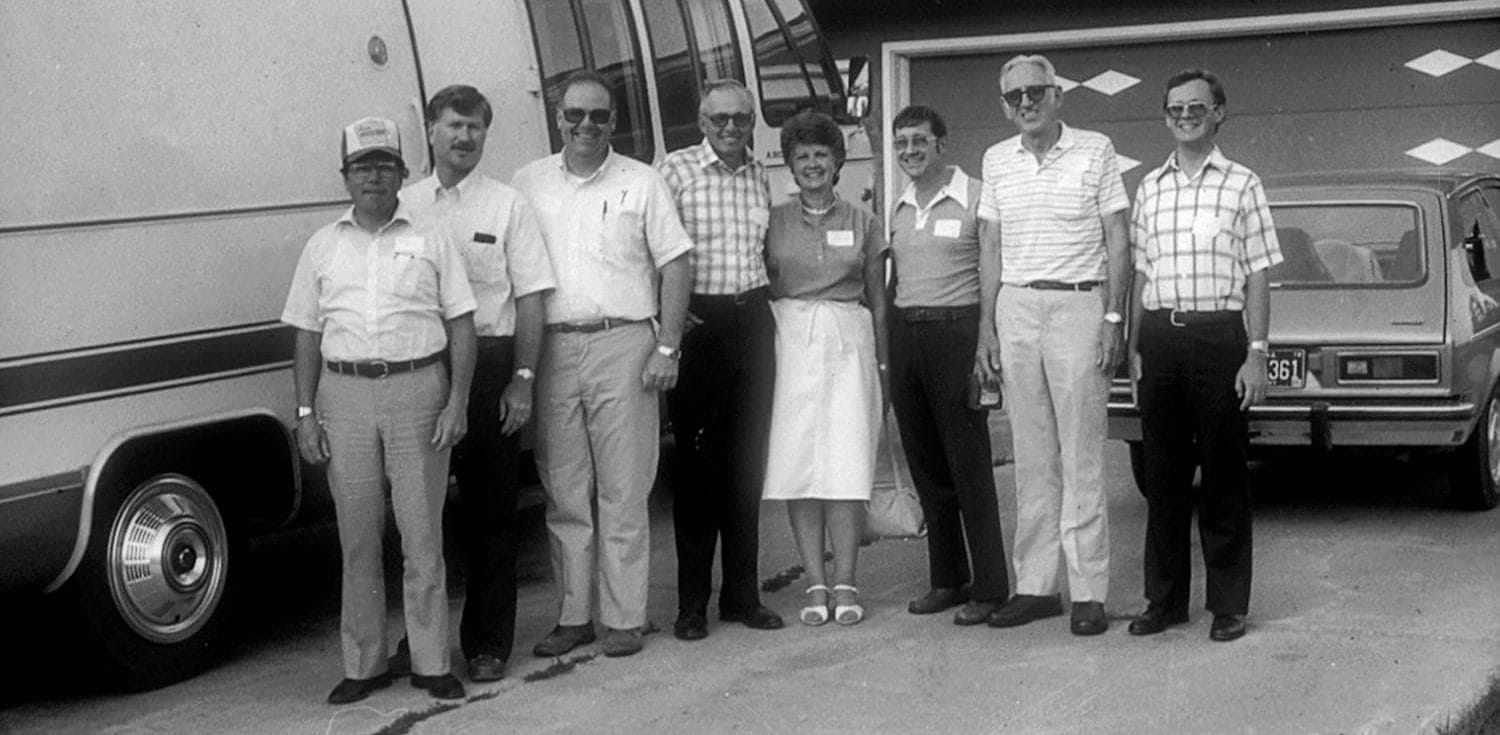PFI’s History of Continual–and Intentional–Change
Since the birth of the organization, Practical Farmers of Iowa has adapted its work to mirror members’ evolving priorities and goals. At the same time, our commitment to farmers leading the organization has remained resolute.
When PFI opened its doors in 1985, founding and early members were largely Iowa farmers who operated diversified crop and livestock farms. In the 1990s, more fruit and vegetable farmers joined the ranks. In the early 2000s, out-of-state and non-farmer members increased their presence.
As early as 2004, PFI started offering translation for Iowa farmers who didn’t speak English as their first language.
Sarah Carlson, then a graduate student at Iowa State University who now serves as our senior programs and member engagement director, remembers translating documents into Spanish. In 2018, with board and member input, we buckled down on reaching out to first-generation Iowans and have been adding seats to our table since.
At our founding, Practical Farmers’ primary programs were farmer-led education and on-farm research. We started working on food system infrastructure in the late 1990s, with projects such as the Pork Niche Market Working Group and the Field to Family Project. In the early 2000s, we got involved with Buy Fresh, Buy Local to increase markets for local foods.

PFI’s co-founders and some of its earliest supporters at PFI’s first meeting in 1985. This meeting kicked off a statewide RV tour to recruit early inaugural members. From left to right: George Moriarty, an advisor with the Iowa Farm Business Association; Larry Kallem; Bill Liebhardt, with Rodale Institute; Dick Thompson; Sharon Thompson; Mike Herman; Wes Buchele, of ISU; and Ricky Voland. Photo taken by Rick Exner.
Around 2007, we started providing business services to beginning farmers and families working on farm transfer. In 2010, we launched our Savings Incentive Program, where beginning farmers participate in education, business planning and mentorship. At the end of this program, they receive a savings match to invest in a farm asset.
In 2015, we offered our first cover crop cost-share program in response to farmers wanting to raise cover crops but saying financial investment and risk were barriers to adoption.
We know that farmers are successful at making farm improvements because of their connection to PFI’s network. Yet Iowa is still seeing farm consolidation, the demise of rural communities, rising rates of diseases linked to diet and lack of healthy foods, soil loss and decreasing water quality.
These trends are going counter to the vision we want to collectively create: an Iowa with healthy soil, healthy food, clean air, clean water, resilient farms and vibrant communities.
Because we know that members are making changes to their farms, the strategic planning conversations we held in 2020 centered around how to expand our ranks. To gather feedback, we held listening sessions with members.
Many shared that addressing barriers for farmers was vital. “Continue to remove barriers for farmers to make change,” one person shared. Another asked, “What are the barriers for the “silent majority” and how can we lessen those?”
From those sessions, we learned (this is an excerpt from the summary of them) that: “There continues to exist conflicting desires for PFI to focus on reaching conventional farmers, versus focusing on reaching farmers who already exhibit a lot of ‘PFI’ behaviors: curiosity, diversity, etc. We need to balance doing both.”
Guided by our current strategic plan, we are growing our programs to remove financial barriers to making change. We’re helping farmers make more informed decisions. We are also working hard to increase the number of farmers making positive changes on the landscape so we can see positive trends in Iowa’s environmental, community and human health.
At the same time, we’ve taken great care to preserve, and grow, our original farmer-led education and research programs, and to continue cultivating an open and supportive community of farmers.
Our field day season is in full swing, so please come out and see first-hand how farmers are teaching each other. Watch for the annual Cooperators’ Program Report to get an update on the results of 2023 projects, and what’s ahead for 2024.
While purposeful change is good, it can be hard to adapt to – and there are always kinks to work out. If there’s anything from the past you miss, or anything you’d like to provide feedback on, please get in touch with me. We are making changes to serve you, and we always welcome your thoughts.
Thanks for being part of this adventure,
